- Home
- Roger Zelazny
The Black Throne Page 2
The Black Throne Read online
Page 2
The disposition of the city seemed slightly different than the last time I had studied it from this vantage, though my mind was troubled and the fog moved too quickly for me to be certain of anything. For with fog I could see her again with the eyes of memory, Annie, dream child, dream girl, dream lady, Annie, she whose existence I had counted over the years as some recurrent fantasy, a child's imaginary playmate who had, somehow, grown up along with him, who, somehow, summoned me, or I her, to realms of hysterical vision, usually upon a seashore, Annie, my dear hallucination, my lady of the fog... .
And that was all. For what more could she be—my secret aberration, dream companion, somehow friend or even more ... ?
Annie. Not real. Of course not. All those times we had met, no more substantial than the fog I now considered. Or so I'd thought. Until the day before yesterday when my world was broken.
I had been walking in the town, prompting digestion following dinner. Then as now a bit of fog had drifted on the sea breeze through lengthening shadows. Autumn matched the sea with a dampness of its own. Storefronts mixed darkness with reflections. A patient spaniel awaited his master before a public house. Dust glistened on the roadway. Several dark birds passed seaward, uttering raucous notes. At this, I was overtaken by a great feeling of uneasiness. Moments later, I heard the cry.
That seems the best way to put it, though upon reflection it does not seem I actually could have heard her just then. For the coach was not yet even in sight. It was more that there was a cry and I apprehended her presence.
A moment later the coach careered around the corner—a tall, black affair—springs protesting, horses all lathered, its swart driver wrestling with the reins, lips curled back in something near to a snarl. The vehicle swayed dangerously, straightened, and plunged ahead, passing me in a swirl of dust. But I saw her face at its window—Annie. Our gazes met for but the briefest of moments, and she started and I heard her cry out again, though I was not certain that her lips had moved, nor did any of the several other pedestrians near me show any signs of having heard.
"Annie!" I shouted back, and then she was by me and gone away down that street that took her to the sea.
I turned and I began running. The dog barked a few times. Someone shouted something I could not understand and followed it with a laugh. The coach rumbled on its way, gaining on me, and I found myself racing through a cloud of dust.
I began to cough before I reached the corner, and my eyes were brimming, I moved back to the side of the road as the coach pulled away, regaining the boarded walk I had departed. I continued to follow, though at a slower pace, concerned more with keeping track of the coach than catching up with it immediately. I was, in this fashion, able to keep it in sight for some while, increasing my pace as the dust settled. When it turned, I ran again, to the corner in question, and I caught sight of it once more.
Eddie, I seemed to hear her say. Help me. I fear that I have been drugged. I believe they mean me harm... .
I began another dash, this time downhill. The coach seemed headed toward the harbor, was almost there, actually. I ran on, oblivious to everything but the plight of a woman whose very existence had been a thing of ambiguity to me but moments before. My lady of dreams and shadows, of beaches and mists, was somehow trapped in the real world, confined to a coach rushing toward the docks. She needed my help and I'd some fear as to my ability to reach her in time to provide it.
Nor was this fear unjustified. As I pounded down the street her captors must have been transferring her to a boat. By the time I reached the pier upon which the coach stood abandoned, door flung wide, the boat was already drawing alongside a black ship of somewhat unusual construction, sails raised and bulging—a frigate or brig perhaps (I'm a soldier, not a sailor)—which looked swift, and possibly wellenough armed, to be a privateer. I'd swear I heard her call one more time then, though the distance was great, and as I uttered an oath and looked about for some means of transport for myself the boat was grappled to the ship's side where its crew commenced transference of a burden which had to be an unconscious woman.
I shouted, and none of them paid me the slightest heed. Nor did anyone appear in the vicinity to see what prompted my cries. I was tempted to plunge into the water and swim out, though common sense warned me of the foolishness of putting myself into such a weak position. Then—for an instant—I thought that my shouts had been answered. A series of cries were uttered aboard the vessel. But moments later these were followed by sounds of the anchor winch. It was sailing orders that I was hearing.
Powerless, I watched as the vessel turned slowly to begin a tacking sequence which bore it into the line of a breeze which quickly took it seaward. There was no one about who might assist me, no vessel I might appropriate in which to give pursuit—and, of course, no chance of achieving anything by myself even if I did possess a small, fast boat. I could only stand and curse and watch my Annie being spirited away to the ends of whatever perverse destiny had ruled our association.
And so the coming and going which had ruled my thoughts these two days, casting a pall that even an afternoon with Legrand could not lift. And now, as I made my way back to Fort Moultrie, I'd a premonition I would not be returning to the service this night, for riding at anchor perhaps a quarter of a mile out from shore was a ship, a black ship of somewhat unusual construction. I would swear it to be the vessel into which I had seen Annie being taken.
* * *
Later. Later. Much later. Walking. Staggering, really.
* * *
And he staggered through the fog, seeking her, uncertain how he had returned from Fordham to the kingdom by the sea. Perhaps the air would clear his head. There was a gap somewhere between events.
The Valentines had been kind, as had Mrs. Shew. But the break in consciousness between that then and this now was so strange a thing as to deny the touch of reason. There was a gap—yes! a black chasm—somewhere at his back, a thing profound as death or sleep. Yet he could not be dead, unless to be dead was to feel as if one had been drinking. He massaged his heavy brow, turned slowly and looked back. The fog prevented his seeing where he had come from, beyond a half-dozen or so irregular tracks.
And he knew as he considered them that he was incapable of retracing them. He stood swaying, listening to the sea. At length, he turned again, continued what he knew to be his course. This was a special place, a place where holidays of the soul were celebrated. Why now? What now? Something was denied, something withheld. Like a word at the tongue's tip, the harder he tried the more difficult it was to recall.
He reeled; once, he fell. Truly, he could not remember whether he had taken a drink. He suspected that he had, though its occasion eluded him. The waves came louder of a sudden. The sky was darker than it usually was here, behind the fog. He brushed sand from his trousers. This was the place, yes... .
Stumbling forward now, his head cleared and the grief assailed him, fresh, heavy, overwhelming. And with it, he suddenly knew what he would find, with but a little more persistence. He turned inland, and after but a few paces a dark bulk loomed.
The ground rose, grew less sandy though the voice of the sea lost nothing of volume. His step grew steadier as he exerted his will. The massive shape before him diminished somewhat. Its lines grew clearer. Eyes blazing, jaw tightening, he hurried.
Arriving, he put forth his shaking hand, slowly, to touch the cold, gray stone. Then he sank to his knees there on the threshold, and for a long time he remained unmoving.
When finally he rose the sea was sounding even more loudly at his back and its crumbling fingers had touched his boot. Without a backward glance he reached for the black iron gate, unlatched it. He pushed it open and entered the place's damp interior. He rested long amid the shadows then, listening to the sea, to the sounds of birds in their passage.
It was later, much later, in another place, in something like tranquility, that he wrote, "I was a child and she was a child, in a kingdom by the sea... ."
; * * *
Downward to the shore... .
* * *
We walk about, amid the destinies of our world existence, encompassed by dim but ever present Memories of a Destiny more vast—very distant in the bygone time and infinitely awful.
We live out a youth peculiarly haunted by such shadows; yet never mistaking them for dreams. As memories we know them. During our Youth the distinction is too clear to deceive us even for a moment.
Eureka, Edgar A. Poe
II
A wisp of fog rode the evening wind by me as I approached the shore. The vessel was too far off to hail.
I began a quick search of the darkening beach hoping for some small boat that might take me out to her.
Minutes passed, and the futility of the enterprise asserted itself.
I turned my attention once more to the ship. Despite the oncoming night and the fog, I realized that I was going to swim out to it. There was no other way to get there. Though I had been skilled at rough-andtumble even before I'd joined the army, I had no illusions concerning my ability to defend myself against an entire ship's crew. My speed as a boxer, my expertise at wrestling would hardly serve me against a dozen sturdy sailors with belaying pins and boat hooks. Yet I could not let the black ship sail away again, taking Annie out of my life for what was likely the last time. I would have to take any chance, run any risk rather than let her get away.
But even as I knelt to unlace my boots, I heard the creaking of a winch. It came from the ship, where moments later I saw that a boat was being lowered into the water. My boots remained laced and I stood slowly, squinting. Obviously, the ship was not about to sail away this instant. With a party about to disembark from it, I might stand to increase my chances of helping Annie by observing rather than splashing my way out to the sinister hulk. It was also possible that the entire affair might be handled with less risk than I had first anticipated.
After all, could I be certain that there was something nasty afoot? Might I not have misunderstood a situation wherein Annie had been hurrying of her own volition to keep a pressing shipboard engagement? Could I not be projecting my own fears and apprehensions onto an innocuous event—turbulent emotions bred of our mysterious relationship?
The perverse imp which invariably appeals against my reasonings shouted No! It is unfortunate how often that imp seems possessed of the greater part of wisdom. I felt this minutes later, after the rowers of that boat had commenced their way shoreward through the deepening fog. For I hailed them, and they corrected their course, coming in my direction.
There were eight or ten men in that longboat, headed toward me with rapid, powerful strokes. I wondered just then what their purpose might be in coming ashore here, at just this time. Then I caught clearer sight of their leader, an evil-looking ruffian. The man was staring at me, grinning, rubbing his knuckles. Somewhere, my imp chuckled.
It bothered me, the way the man stared—not so much his general mien and apparent intent, as the fact that I seemed the object of his entire attention. I could not help but feel that their purpose in bringing the boat ashore, right now, right here, was only to do me some strange harm. A feeling—irrational, yet unshakable—filled me: They wanted me, and they had somehow known that this was where I would be this evening.
Fog blew between us as they reached the shallows, and I heard them shipping oars, splashing over the gunwales, heard the grating of the boat's bottom as they drew it landward over pebbles and sand. I turned and bolted.
A cry went up at the fog's next parting, and I heard the sounds of pursuit. I turned inland, crashing through a thicket. The landing party followed, nearer now, trailing me easily.
"Hold up or we'll go harder with you!" called one of the men—the leader, I believe. This was all the inducement I needed to double and redouble my effort to escape.
Something grazed my shoulder—a thrown stone most likely—and the next cry sounded even nearer. I kept going, aware that someone was gaining on me. From the sounds of his breathing, the sounds of his passage, I could tell that he would be upon me in a moment.
I turned quickly and faced my pursuer, a swart, wiry fellow with a club in his right hand. He halted and drew back in apparent startlement at the unanticipated confrontation. I kicked immediately at his nearest kneecap, missed and struck his thigh. The leg gave way, and I stepped in, punched his throat and snatched away the club. Another, a shorter man with a nasty scar running from mouth to ear was rushing toward me, and I knew I could not escape him.
I waited, hands low. He was unarmed and I let him swing at me without interference, stepping back, leaning a bit. His fist shot by me and I clubbed his elbow. He howled and I stepped in immediately, swinging toward his temple, missing and clipping the hinge of his jaw. He was pushed aside by a large, black-bearded individual who swung a dagger at my stomach. I dodged the stroke, struck at his arm and missed. His left hand caught me beside the head then, knocking me against a tree. I saw his teeth and two gaps through his beard as he slid forward, the knife beside his hip, left hand extended to clear the way.
Too stunned to move, I watched him come on. Then an unnaturally long hairy limb crossed his breast from the right, jerking the knife arm back up against his body. A misshapen hand appeared upon his left hip. He was then raised high into the air and hurled back among his fellows.
I shook my head, clearing it somewhat as I beheld what I knew, from pictures, to be an ape; as to what sort, though, I was ignorant. It was difficult to tell its true size because of its slouch and its shambling gait. Its advent and action produced considerable consternation among my pursuers, however. Two of them had been knocked down by the hurled man. At that moment a brace of pistols was fired from behind me, to the left. One man fell, another clutched at a suddenly incarnadined arm.
"This way, mate!" came a raspy voice from the rear and my arm was seized in a powerful grip. "C'mon, Emerson! Move it!" he cried, and the ape turned toward us and followed.
I allowed myself to be led, through the brush to a cleared area which took us to the beach. We commenced running then. I'd no idea where we were headed but the short man at my side moved with a definite purpose. There were sounds of pursuit, but the fog muffled them more than a little and it was difficult to tell whether they were on the right track. My first glance at my rescuer had made me think him, for a moment, to be a child, as he was no more than four-and-a-half feet tall. But then I glimpsed his strange ruddy face beneath an unusually coarse shock of dark hairs, and I realized simultaneously the width and thickness of his shoulders and upper arms.
He ran, I jogged, the ape lurched and sprang along the shore. At length, we halted beside a pile of brush which the man immediately attacked. I gave him a hand as soon as I realized that a small skiff was concealed beneath it. Before we had done with it, however, one of our pursuing sailors stumbled toward us out of the fog. He held a cutlass in his right hand and he raised it high when he beheld us.
"Damn!" he cried, rushing forward.
The small man stood between us. His left arm went up as the blade was swung toward his head. He caught the wrist of the man's swordarm, halting its descent entirely. Then, without particular haste, he reached forward with his right hand, catching hold of the fellow's belt around its buckle. At that moment, I heard a crunching sound, as of grating bones, from the vicinity of the wrist he was still squeezing. The swordsman repeated his earlier observation, but he was already off his feet by then, raised into the air by the small man, who turned and cast him out over the waters. Immediately, the short man caught hold of the skiff, which he pushed, effortlessly, seaward, having paused only to give me a wink and an evil grin.
"All aboard, Mr. Perry! Emerson—you, too! Come on!" he said. Then, in afterthought as we boarded, "It is Perry, ain't it?" he asked.
"It is indeed," I said, taking up one of the oars. "I never saw any of those men before. I've no idea why they attacked me." As we commenced rowing I added, "I must thank you for your intervention. It was most t
imely."
He snorted something resembling a laugh.
"Aye. It were most necessary," he said. "And almost too late."
We drew heavily upon the oars, and after several minutes I could discern nothing but fog in every direction. The ape pushed its way between us, moved forward into the prow and crouched there. Every now and then it made a gesture which seemed to mean something to my rescuer, and he corrected our course slightly on these occasions.
"Peters," he said suddenly. "Dirk Peters, at your service. We can shake hands another time."
I grunted. Then, "You already know my name," I said.
"True," he acknowledged. I waited for several strokes, but he did not elaborate. The fog remained heavy.
The ape gestured again.
"Hard to port. A pair should do it. I'll ease up and you pull," Dirk said then.
I complied, and when course was corrected, we resumed our normal rowing, I asked, "Where are we headed?"
Following a two-stroke pause, he replied, "There's a gentleman aboard a certain ship as has expressed a devout wish to see you. The same gentleman as sent me and Emerson ashore to look after your interests."
"It seems an awful lot of people know who I am, knew where I was going to be and knew when I'd be there."
He nodded slowly.
"So it seems," he said.
A little later, the ape uttered a low sound and bounced several times in place.
"What's that, Emerson?" Dirk asked. Then, "Oh. Oh-oh," he uttered and suddenly we were backing water.
There followed some eerie echoes, and then a great dark shape loomed ahead and sliding to starboard. It was the ship from which my pursuers had come. Even as we turned we drew nearer, and I was able to make out her name. She was the Evening Star.

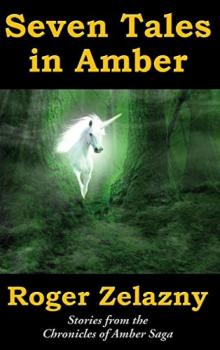 Seven Tales in Amber
Seven Tales in Amber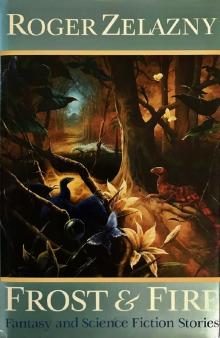 Frost and Fire
Frost and Fire Doorways in the Sand
Doorways in the Sand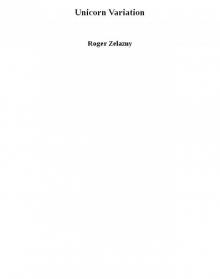 Unicorn Variation
Unicorn Variation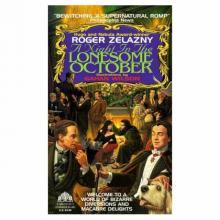 A Night in the Lonesome October
A Night in the Lonesome October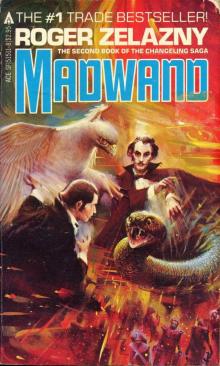 Madwand
Madwand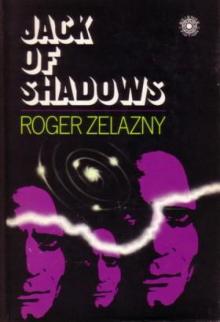 Jack Of Shadows
Jack Of Shadows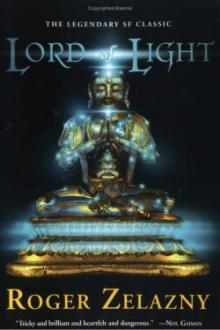 Lord of Light
Lord of Light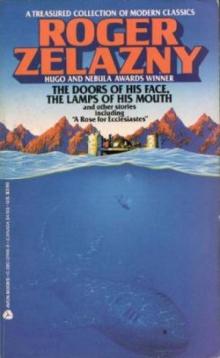 The Doors of His Face, The Lamps of His Mouth and Other Stories
The Doors of His Face, The Lamps of His Mouth and Other Stories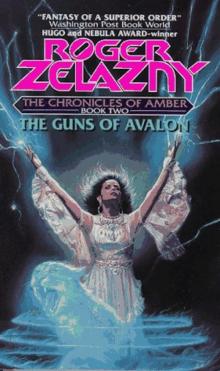 Guns Of Avalon tcoa-2
Guns Of Avalon tcoa-2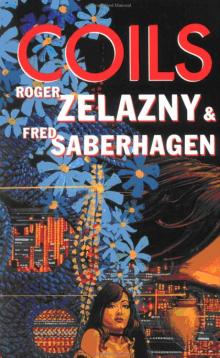 Coils
Coils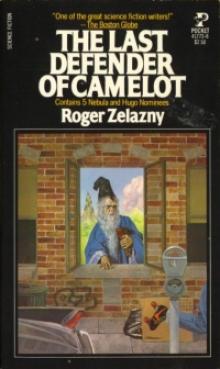 The Last Defender Of Camelot
The Last Defender Of Camelot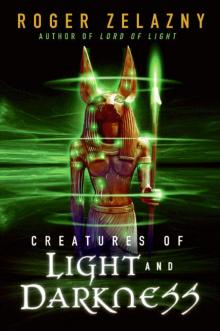 Creatures of Light and Darkness
Creatures of Light and Darkness This Immortal
This Immortal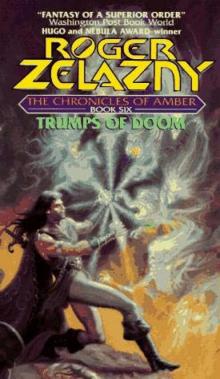 Trumps of doom tcoa-6
Trumps of doom tcoa-6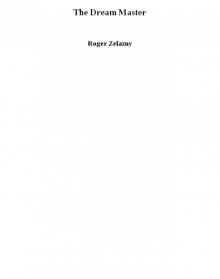 The Dream Master
The Dream Master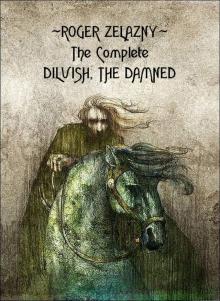 The Complete Dilvish, The Damned
The Complete Dilvish, The Damned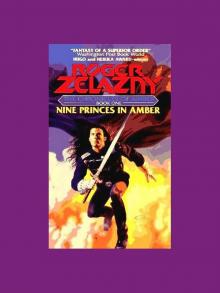 Nine Princes in Amber
Nine Princes in Amber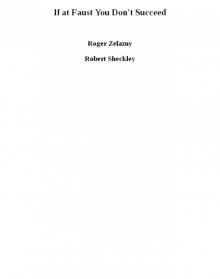 If at Faust You Don't Succeed
If at Faust You Don't Succeed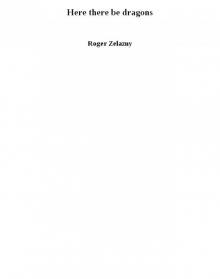 Here there be dragons
Here there be dragons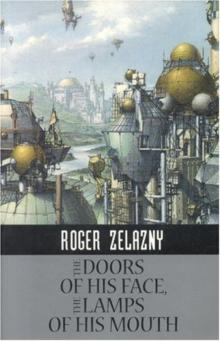 The Doors Of His Face, The Lamps Of His Mouth
The Doors Of His Face, The Lamps Of His Mouth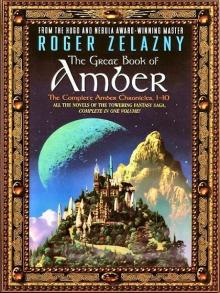 The Great Book of Amber - Chronicles 1-10
The Great Book of Amber - Chronicles 1-10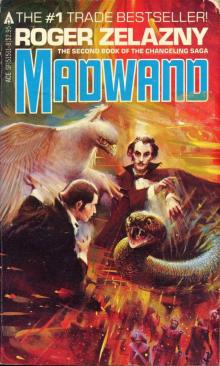 Madwand (Illustrated)
Madwand (Illustrated)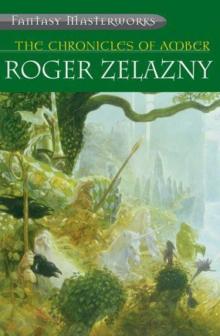 The Chronicles of Amber
The Chronicles of Amber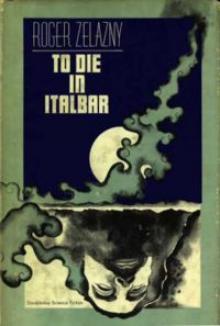 To Die In Italbar
To Die In Italbar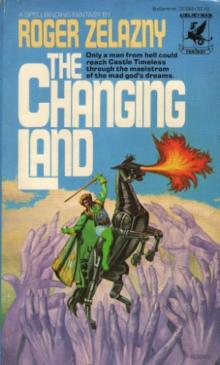 The Changing Land
The Changing Land The Furies
The Furies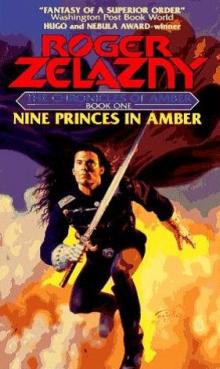 Nine Princes In Amber tcoa-1
Nine Princes In Amber tcoa-1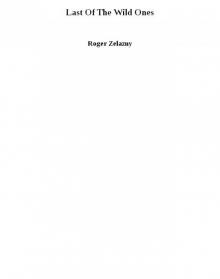 Last Of The Wild Ones
Last Of The Wild Ones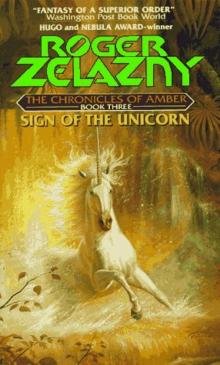 Sign of the Unicorn tcoa-3
Sign of the Unicorn tcoa-3 My Name is Legion
My Name is Legion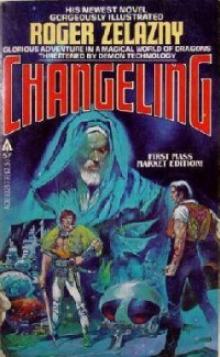 Wizard World 1: Changeling
Wizard World 1: Changeling Changeling
Changeling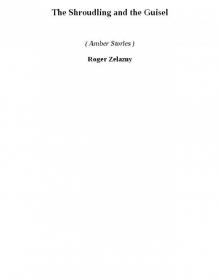 The Shroudling and the Guisel (amber stories)
The Shroudling and the Guisel (amber stories)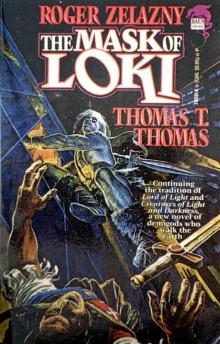 The Mask of Loki
The Mask of Loki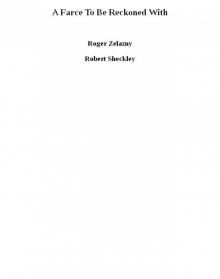 A Farce To Be Reckoned With
A Farce To Be Reckoned With Roadmarks
Roadmarks When Pussywillows Last in the Catyard Bloomed (rtf)
When Pussywillows Last in the Catyard Bloomed (rtf)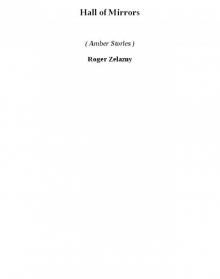 Hall of Mirrors (amber stories)
Hall of Mirrors (amber stories)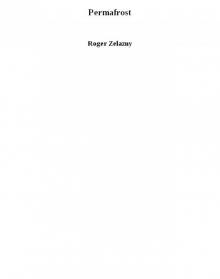 Permafrost
Permafrost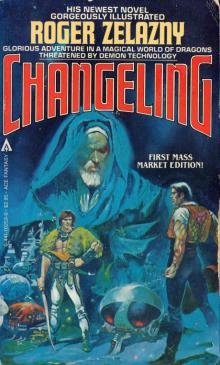 Changeling (Illustrated)
Changeling (Illustrated)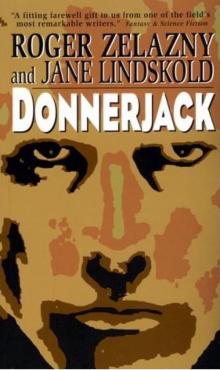 Donnerjack
Donnerjack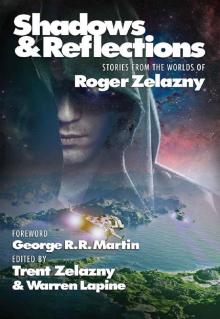 Shadows & Reflections: A Roger Zelazny Tribute Anthology
Shadows & Reflections: A Roger Zelazny Tribute Anthology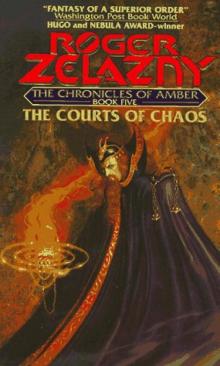 The Courts Of Chaos tcoa-5
The Courts Of Chaos tcoa-5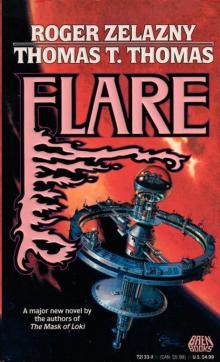 Flare
Flare Doorsways in the Sand
Doorsways in the Sand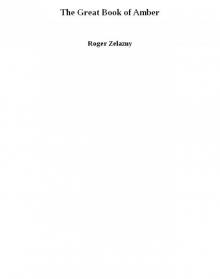 The Great Book of Amber
The Great Book of Amber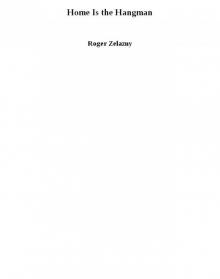 Home Is the Hangman
Home Is the Hangman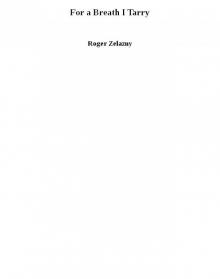 For a Breath I Tarry
For a Breath I Tarry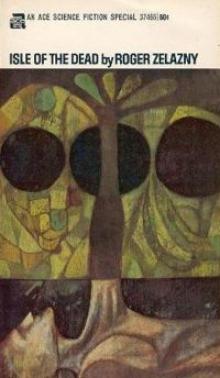 Isle Of The Dead
Isle Of The Dead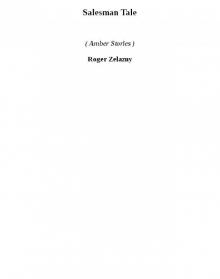 Salesman Tale (amber stories)
Salesman Tale (amber stories) Dismal Light
Dismal Light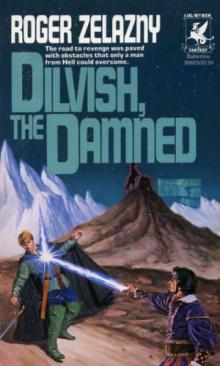 Dilvish, The Damned
Dilvish, The Damned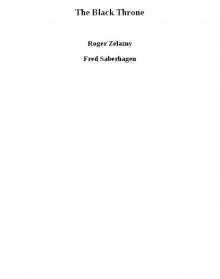 The Black Throne
The Black Throne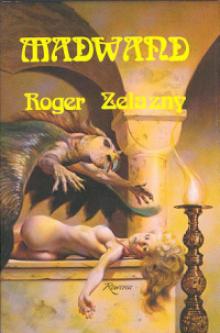 Wizard World 2: Madwand
Wizard World 2: Madwand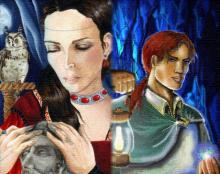 The Salesman's Tale
The Salesman's Tale